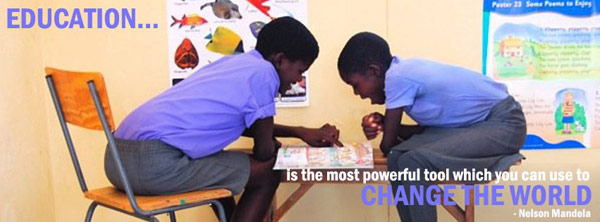Most Americans, when thinking about the country of India, picture smoggy cities and overpopulation. This is regrettably true for most of India. However, I spent my summer in the Ladakh region of northern India, and Ladakh is nothing like the rest of India. On my flight into Leh, as the sun rose softly over the staggering and white Himalayas, I knew that my two-month journey ahead would be unlike anything I had ever experienced.
I was on the flight with the two other WorldTeach volunteers, Ellie and Bindi. We quickly became close as we bonded over the struggles of altitude adjustment and the wonders of prayer flags snapping in the wind above every home, shop, street, and monastery. We spent our first week in orientation training, beginning in Leh (Ladakh’s biggest city) and finishing in Sumur, a small village in Nubra Valley five hours away over one of the highest passes in the world. During orientation, we learned to speak some Ladakhi, adapt to the Ladakhi culture, hand wash clothes, and, most importantly, use a pit toilet. At the end of orientation, I was told that I had been placed at a government school in the nearby village of Tegar. I became nervous but excited for the opportunity I had anticipated for months.
I moved in with my new host family the day before the first day of school, and they were very welcoming. I had a host aba and ama (father and mother), an abi (grandmother), and a nomo (little sister) in kindergarten. We established a routine quickly: After waking up, my host father and I would make the hour-long walk down to the forest with our cow so she could eat for the day. On a school day, I would then walk to school with my host mom and sister, which only took about five minutes. After school, or if there was no school, I would often help my host father or the community with various work and service projects (like building religious structures). The first school days, despite my excitement for teaching, were very frustrating for me. Only half of the school’s teachers would even bother to show up, and most school days were canceled due to an absurd number of holidays. I was expecting an untrained but dedicated school staff with a lack of resources; what I encountered instead was a trained but lazy school staff, still with a lack of resources. My expectations were shattered, and I had challenges ahead of me, but I figured that these were positive challenges and real reasons to need volunteers.
After two slow and rather unsuccessful weeks at this school (there were only four actual school days, and I was never given a schedule), we received heartbreaking news that volunteers were no longer welcome in Nubra Valley. Although safe, the area is near a contentious border zone with Pakistan and China. So, for reasons unknown to us, we were told to by the military to leave. We didn’t have the opportunity to say goodbye to our host families, which was sad (although at the end of my journey we reconnected), and for a couple of days, we had no idea what we were going to do for the rest of our experience. We all felt discouraged that we had come so far to have accomplished nothing. Our staff made some phone calls, though, and arranged for us to continue teaching in a different, far more remote, district called Zanskar. Now, the three of us volunteers would be at the same school. From my journal: “I felt broken. We were going to another area to teach, but we had already wasted so much time in Nubra Valley that I knew it would be completely useless and unimpactful.”
It wasn’t until I arrived at my new school that I began to feel more hopeful about my experience. The teachers we met initially seemed to be on top of everything and passionate about making the most of our three weeks left. We began the day after we arrived, and the teachers put us right to work, having us teach classes every period. We had our schedules after only a couple days, and mine included English for preschool, fourth grade, and seventh grade, and computer literacy for a couple of combined classes: second to fourth grades and fifth to seventh grades. In addition, the school allowed us to tweak the schedule so that we could hold teacher workshops. We worked full hours, ten to four, Monday through Saturday. They even canceled holidays for us to maximize our time! Most days, after school, the other volunteers and I worked on lesson plans for both regular classes and teacher workshops. It was exhausting work, but it was rewarding, and we centered ourselves in the free time we had by engaging with the village members (our new friends!) and exploring the area. This included activities such as talking with the oldest person in our village, milking a cow, attending a wedding, seeing the water mill, taking pictures in traditional Ladakhi clothing, having tea at neighbors’ houses, visiting monasteries, and, of course, climbing Himalayan mountains.
When our three weeks of service came to a close, we held a meeting at the school with the parents and grandparents of all the villages in the area. We squeezed into a little room, and the three of us volunteers had the opportunity to speak to them. With the help of a translator, we talked to them about ways they could continue improving their education system after we left, and we thanked them gratuitously for their hospitality. In response, they took turns expressing their gratitude and explaining what our efforts meant to them. It was the first time in their history ever receiving volunteers for education, in addition to teacher training. There were many tears as they showered us with gifts, served us tea, and sang us songs. This response made me feel like my experience was totally successful and completely worthwhile.
Reflecting on the experience with the other volunteers, we talked about how proud we were of the teachers and of our students. In our teacher workshop, we taught English skills (and how these skills could be applied in classroom instruction), general teaching skills, writing skills, and computer skills. They were so engaged, and we could see their improvement, especially in the essays we assigned them!
I was especially proud of my seventh graders, four girls, whom I had twice a day for English. The first couple of weeks with them were incredibly awkward and difficult. They really didn't seem to understand as much English as I expected. Plus, they were very shy and didn't want to answer any of my questions. Sometimes, we would spend long periods of time in silence while I waited for them to utter an answer in English even remotely close to the actual answer. So, I decided that it was important that I try to make a point of encouraging and developing their confidence. By the last week, they would speak confidently in English, even if their answer was incorrect, and this made me very happy. We were even able to study paragraph structure and use this for a full on debate on the last day of school. Which animals are better, cows or yaks?
Despite the brevity of what our main teaching experience turned out to be, we truly felt like we had made a difference. Even if the young students learned next to nothing from us, we felt that our teacher workshops served as useful training, and that we had inspired a community of parents, teachers, and students to believe that they have the power to “be the change they wish to see in the world.”
WorldTeach operates under the goal that, over many years in any given location, consistent volunteers can drastically improve education in the places that need it most. The organization also emphasizes that students will have an experience that will significantly motivate and contribute to their future careers in service. The vision of WorldTeach could not have possibly aligned more with my experience; I felt like a small but integral piece of the solution to education challenges worldwide, and my experience majorly shaped my worldview and ambitions. I learned that I care about climate change much more than I had previously thought, specifically about how it adversely affects vulnerable populations in developing regions. In addition, this experience reinvigorated my passions for bringing quality education, technology, and internet access to developing areas. This summer, I lived through so many indescribable moments and recurrences that contributed to my growth in how I view issues regarding development. And now, I feel like I truly understand the Ladakhi culture on a level that is difficult for most to attain. Especially as my first longer international stay, this experience greatly influenced my career ambitions and my views on international issues.
My final week in Ladakh was spent on a reflective camping outing. It was refreshing to talk through many of the experiences we had and the emotions we felt, since a journey like this is, for anyone, difficult to process. I knew I would miss the pure and imposing mountains that had become my home, but I learned that this home wasn’t defined by the beauty of its landscape. Rather, it was uniquely defined by the love and happiness expressed by every single member of the community, always. I will miss this land of prayer flags; those mystic rainbow squares of fabric have sent prayers to the heavens for all living beings for thousands of years. I anticipate returning here, to my home village, to my school, to my friends and family, and to the land lost in an eternal time where the birds and the clouds may come and go, but where love and truth transcend.





















